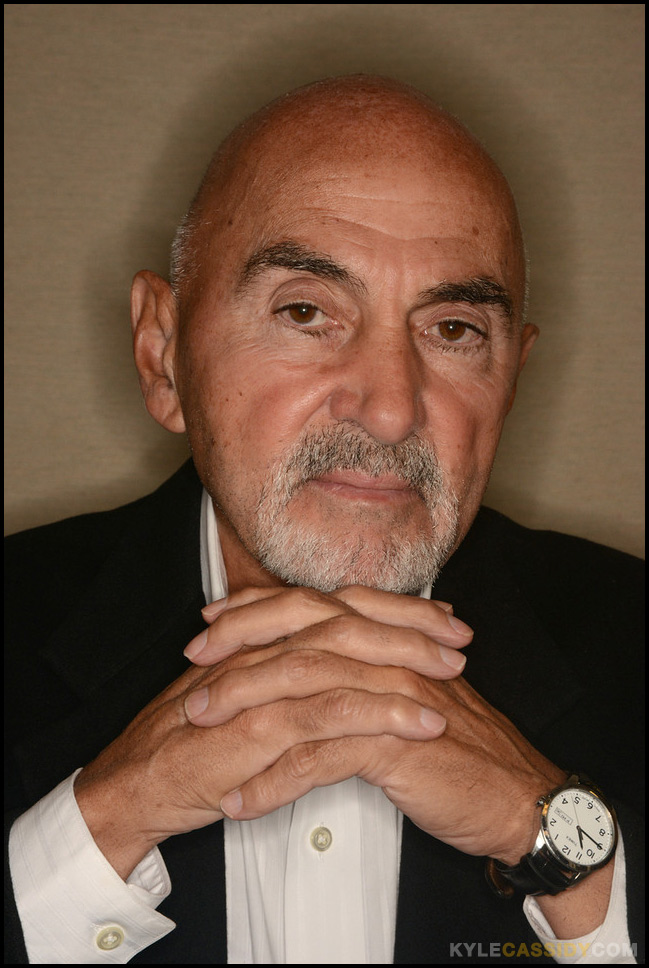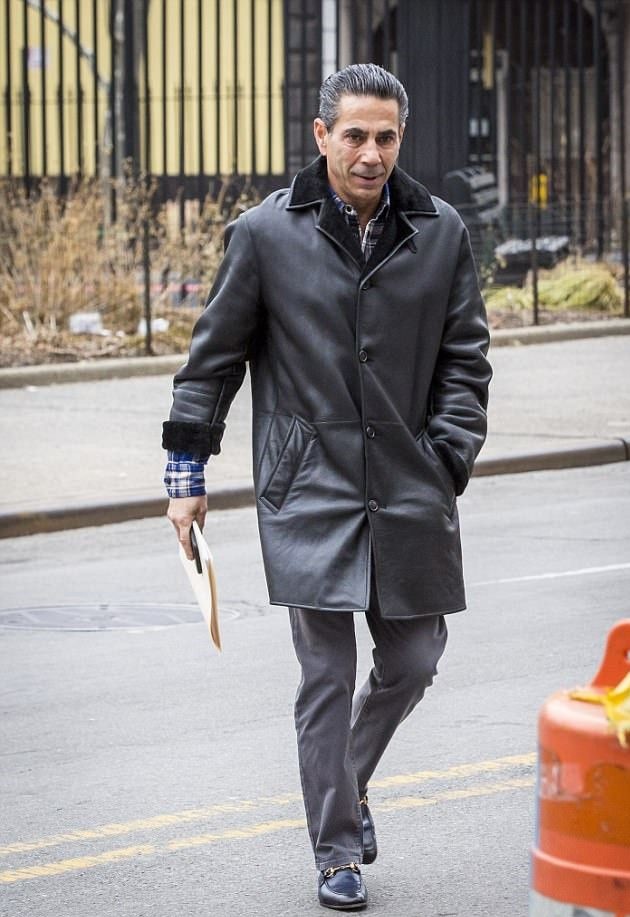The Mafia boss who flipped
Ralph Natale, who led the Philadelphia crime family in the 1990s, became the highest-level Mob turncoat in history

Behind bars and abandoned by his men, Ralph Natale of Philadelphia became the first official American Mafia boss to flip when he cut a deal with the feds in September 1999. Natale, a polished and gregarious gangland chief known for keeping physically fit and being friendly with the press, copped a plea in a narcotics trafficking case and agreed to testify against his underboss, Joseph “Skinny Joey” Merlino, as well as corrupt Camden, New Jersey, Mayor Milton Milan.

The 85-year-old Natale, who currently resides in the Witness Protection Program, headed the Bruno-Scarfo crime family out of Philadelphia and North New Jersey in the mid- to late 1990s. As part of his cooperation deal, Natale admitted to ordering or personally carrying out 10 separate Mob executions.
Most enticing for authorities in flipping Natale was, they believed, his ability to directly connect the swashbuckling Merlino to a string of Mob hits that rocked the Philly underworld. Some of the murders were sanctioned by Natale from prison. Merlino, 58, has long been Public Enemy No. 1 for the feds in Pennsylvania.
Natale was taught to kill by storied Philly Mafia hit man Felix “Skinny Razor” DiTullio, who operated out of the Friendly Lounge where Natale tended bar as a young man. After learning the tricks of the trade under Skinny Razor’s tutelage, he went on to craft a formidable reputation as a racketeer and enforcer for legendary godfather Angelo Bruno in the 1960s and ’70s. Natale was Bruno’s point man in the crime family’s labor union rackets and traveled around the country on his behalf troubleshooting and palm-greasing.
Using Natale as his muscle, Bruno took control of the freshly minted Atlantic City casino industry through a hostile takeover of the city’s bartenders, construction and hotel and casino workers unions. On orders from the man the news media miscast as the “Docile Don,” Natale shot Irish mobsters George Feeney and Joey McGreal to death in 1970 and 1973, respectively. McGreal was slain on Christmas Eve in a dispute over power in Bartenders Union Local 170.
Bruno began losing his grip on the crime family after Natale was incarcerated for drug dealing and arson in January 1979. Bruno was assassinated in March 1980. While Natale did 15 years in prison, he plotted his return to the streets, linking up in 1990 with then-28-year-old Merlino (who was doing a short stint for an armored truck heist) and deciding to go to war for the Philly Mafia throne he previously protected for Bruno.
Merlino and his pals became Natale’s arsenal on the street in his fight against Sicilian-born John Stanfa, believed to have been one of the conspirators in Bruno’s assassination and installed as Philly boss by New York’s Gambino crime family in the early 1990s. From his prison cell, Natale commanded a war that left a trail of bodies. Stanfa was locked up for his role in the violence.
Natale walked out of prison in the fall 1994 as the don of the Bruno-Scarfo crime family. His networking in the prison yard paid dividends, and he secured backing from the Genovese, Lucchese and Colombo borgatas in New York. Merlino was named his underboss.
It’s unclear exactly when Natale was “made” into the Mafia. During debriefings with the feds and testimony in court, he claimed Merlino inducted him upon his release from prison in 1994, but his 2017 memoir Last Don Standing (co-authored by Larry McShane and Dan Pearson) states that he was made by Bruno and New York godfather Carlo Gambino in the 1960s.

Moving into a luxury condo along the Delaware River in Pennsauken, New Jersey, Natale set up his headquarters at the Garden State Park Raceway, holding daily meetings at the track’s Currier & Ives Room restaurant on the building’s top floor. The restaurant and the condo were wired for sound by the feds for virtually his entire reign.
With Merlino handling collections and shakedowns in Philly, Natale angled for leverage in political circles and got his hooks into Camden, New Jersey, Mayor Milton Milan, funneling the young politician $50,000 in bribes. He also started dabbling in the illicit drug market and engaging in a high-profile extramarital romance with one of Merlino’s female contemporaries who was friends with his daughter
FBI agents arrested Natale at his condo on a parole violation (associating with known criminals) in the summer of 1998. Almost immediately, Merlino seized power and cut Natale out of the loop. He was put on the shelf and no longer received tribute payments.
As a result, when Natale was nailed for pushing crystal meth, indicted in prison on September 16, 1999, he felt no particular loyalty to Merlino and spilled the beans on their entire operation. Only Cleveland acting boss Angelo “Big Ange” Lonardo’s cooperation with authorities in the 1980s compares in terms of a coup by the FBI in its battle against the Mob.
Merlino might have gotten the last laugh, though. Merlino allegedly kept Natale in the dark regarding details of certain murders carried out on his watch, and jurors didn’t buy everything the animated former Mafia boss was selling on the stand at a heavily publicized 2001 trial. Merlino and several co-defendants were convicted of racketeering but found not guilty of all the murder counts. Milan was convicted at an earlier trial on Natale’s testimony and served seven years in prison.
Both Natale and Merlino were released from prison in 2011, Merlino in March and Natale in May. Merlino remains the boss of the Philadelphia Mafia today.
Scott M. Burnstein is a journalist and true crime historian who has had six books on organized crime published in the last decade. He founded and runs The Gangster Report (www.gangsterreport.com) newsmagazine website, and has been a part of numerous Hollywood film and television projects. Burnstein writes daily for The Oakland Press in Metro Detroit and has a focus on Mob activity in Detroit, Chicago, Philadelphia and New England.
Feedback or questions? Email blog@themobmuseum.org





